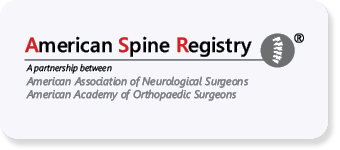
The AAOS Registry Program is a national initiative that collects, analyzes, and reports on orthopaedic data to enhance patient care, support evidence-based practices, and drive quality improvement efforts across the field.
By capturing real-world data from orthopaedic procedures, our registries empower clinicians and healthcare organizations to make informed decisions, benchmark performance, and contribute to the advancement of orthopaedic knowledge.


Why Choose the AAOS Registry Program?
Unparalleled Data Quality: Our registries adhere to rigorous data standards and validation processes to ensure accuracy, reliability, and completeness. Learn about quality collaborations with the Blue Cross Blue Shield Association, Aetna, and others.
Clinical Insights & Benchmarking: Access actionable insights and benchmarking reports on the RegistryInsights® platform to compare performance, identify trends, and drive quality improvement initiatives.
Evidence-Based Research: Contribute to cutting-edge research and evidence-based practices by participating in registry studies, publications, and collaborative projects.
Regulatory Compliance: Stay ahead of regulatory requirements and demonstrate compliance with national quality initiatives through participation in AAOS registries.
Patient-reported Outcome Support: Collect and submit patient-reported outcome (PRO) surveys with our PRO Portal at no additional cost.

Join Us in Advancing Orthopaedic Care
Whether you’re a surgeon, researcher, administrator or industry partner, the AAOS Registry Program offers opportunities to collaborate, innovate and drive meaningful change in orthopaedics. Explore our registries to discover how you can contribute to the advancement of orthopaedic care. Contact the Registry Engagement Team or read through the Frequently Asked Questions for additional information on enrollment, data submission, dashboards and more.







